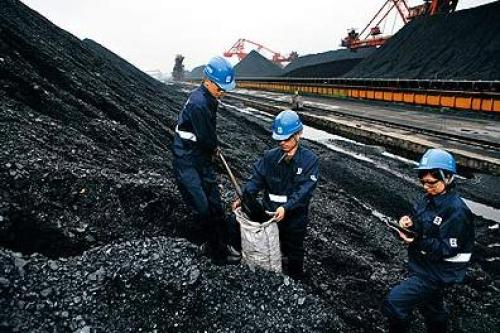
Zhang Gangfeng, general manager of Shanxi Coke Group, stated at the “2014 International Coking Coal Resources and Market Summit Forumâ€: “The slowdown in economic growth is a long-term one. In the short term, the steel industry will be out of luck and the coke industry will have excess capacity. In the transition of law, where is the surplus. Although the season is spring, the winter of the industry is still behind.â€
Zhang Gangfeng’s pessimism and anxiety are representative in the industry.
It is reported that the industrial efficiency of the steel industry in January and February 2014 was worse than in the previous two years. In January, the key statistical units suffered losses. The loss amounted to 1 billion yuan, and the company’s loss reached 43%, a record high. The situation in February is also not good. “The first quarter of this year may be the worst quarterly performance of the steel industry since the beginning of the new century. This signal is very strong, and it feels to the company that it is only now or really into the winter.†Liu Zhenjiang, deputy chairman of the China Iron and Steel Association, made this judgment.
Early this year, the steel industry felt that the arrival of real winter had two rigid factors: First, the market demand was really down. In January, steel demand fell by 8.6% year-on-year, steel production also decreased by 3.2%, and the reduction in output was much lower than the drop in demand. The second is policy constraints, environmental protection requirements, the implementation of regulatory conditions, the constraints of differential electricity prices and capital credits, cash flow constraints, taxation fees, and the requirements for resolving production capacity. For a considerable number of companies, efforts are unprecedented.
No steel can directly affect coal. Some production companies have already experienced a large amount of bulging due to sluggish sales, and have had to cut prices to promote sales. At present, the prices of major coke producing areas in China have fallen below the 1,000-yuan mark, while the coking coal prices have fallen by as much as 500 yuan/ton since August of last year. The industry has used the term “flooding†to describe it.
The heavy pressure of overcapacity is constantly eroding the profits of the entire steel industry chain. Transformation and upgrading have become the problems that most steel companies have to rethink. But where and how to turn has been plaguing steel companies.
The rapid development of e-commerce seems to provide some lessons for the transformation of the steel industry.
Recently, Shagang announced that it will invest 4.8 million yuan in capital increase Qianlong e-commerce company, marking its formal entry into the e-commerce platform, this is the Shanghai Steel Union (300226, shares it), Hegang, Baosteel and other leading After steel companies, another big steel giant tried hydropower operators. Because of its many advantages such as high efficiency and low cost, the steel electricity supplier model is increasingly recognized and accepted by the entire steel industry chain. In fact, at present, in addition to iron and steel production companies, intermediate traders, and third-party platforms are also actively dominating the e-commerce market, the competition for steel e-commerce has entered a period of enthusiasm.
Can e-commerce really save the steel industry? not necessarily.
E-commerce is only a means to strengthen competition, and it does not have any impact on the supply and demand of the steel industry itself. The current dilemma of the steel industry is due to the fact that supply exceeds demand. Therefore, the competition of steel e-commerce can only make the steel industry more efficient in operations, accelerate the formation of a dominant or oligarchic competition, and increase the degree of industrial concentration, but it will basically have no effect on the improvement of the operating environment of the entire steel industry. That is, the competition of iron and steel e-commerce companies can only make individual steel companies stand out, but it cannot save the entire industry in distress.
The plight of the surplus industries, such as steel, coal, and cement, stems from the prominent background of the contradictions between China's total demand and total supply, and thus the difficulties are characterized by long-term, continuous, and structural characteristics. The strategic adjustment of each company's transfer of structure and structure should be more characteristic of the company itself and should not be swarming. Advanced or theoretical "strategic emerging industries" may not be suitable for all enterprises. In this regard, the surplus of emerging industries such as wind power and photovoltaic is a tragic example.
In the process of adjusting the structure of surplus industries, we should grasp the rhythm and strength, and in particular, prevent the economy from being too fast and stalling too quickly. Therefore, Li Keqiang presided over the executive meeting of the State Council on March 19 to determine the division of labor of key work departments of the “Government Work Report†and requested that efforts be made to keep the economic operation within a reasonable range. “We must urgently introduce the established measures to expand domestic demand, stabilize growth, and accelerate key investments. "Pre-project work and construction progress, timely allocation of budget funds" and so on. In any case, all reforms and structural adjustments must be conducted at a reasonable pace of development.
Single Rice Milling Machine,Rice Huller Machine,Rice Milling Equipment,Rice Mill Milling Machine
HUNAN JINSONG MACHINERY CO., LTD , http://www.jsricemill.com